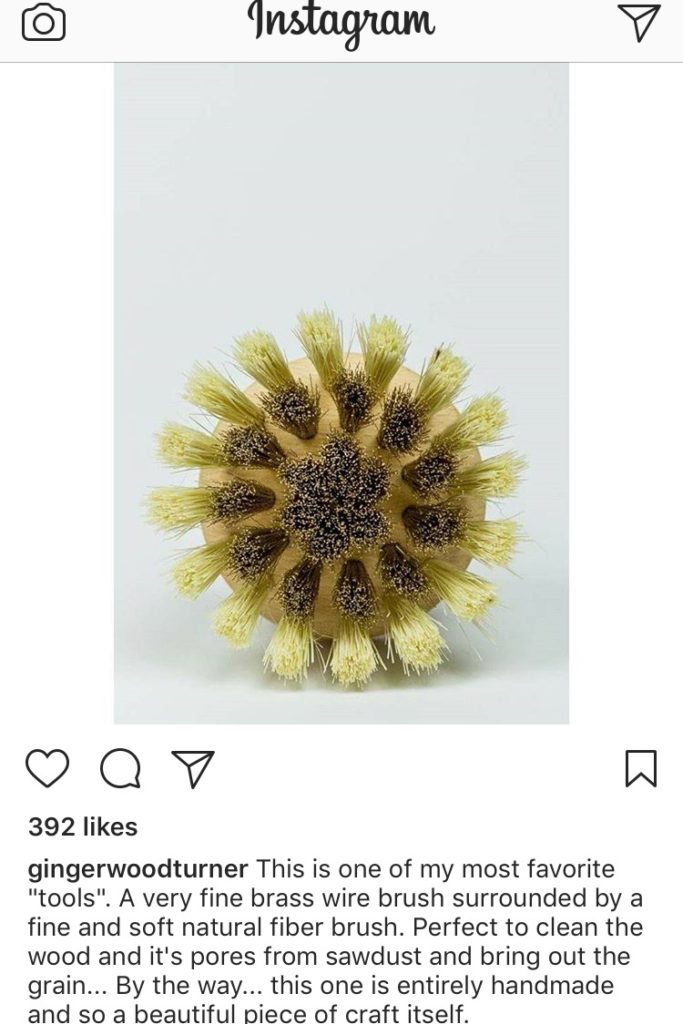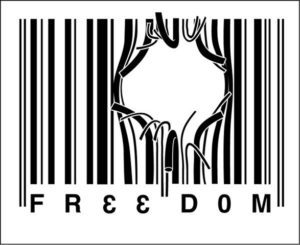Every job is about two things: what it brings to you and what it brings to others.
Today, new iterations of old-time, blue-collar jobs are providing a new breed of craft masters with the personal validation that comes from using their specialized knowledge to serve grateful customers. These butchers, haircutters, distillers, bartenders and a host of others celebrate proud skills / that enable them to produce something tangible / for people they know.
Each part of their work definition speaks to the quality (or lack of quality) in our work too.
For example, many of our jobs seem inconclusive. I spent all these hours, was aggravated along the way, tried to stay motivated, but at the end of the day, week, month or year, what have I accomplished?
Having something (anything) beyond a paycheck to show for your effort is what’s missing in many, if not most, service economy jobs today. As those in manufacturing, farming and fishing—big jobs a century ago—have left to take on “office work,” what the modern workforce actually produces has gotten harder to either describe or personalize.
Customer satisfaction – Quality control – Teamwork – Greater efficiencies – More sales.
What is your contribution to any of them? Whatever you’re adding may earn you a raise, but probably does little to improve your work engagement because there was almost nothing tangible that you either produced or could “own.” When the fruits of your labor feel this remote from your effort, the level of job satisfaction always tends to be low.
On the other hand, think of the difference if you were giving someone a great haircut, mixing an unforgettable cocktail, or aging a steak to perfection. There is nothing remote about these benefits because someone “thanks you” for your expertise right away. You can take their gratitude home with you that night and recall, with pride, your accomplishments before returning to work tomorrow. It’s sustaining, makes you feel that you’re doing something worthwhile, even when the financial rewards are less than an office job might bring.
What is the calculus that motivates today’s craft masters, and how could their trade-offs change your thinking about the jobs you have or the jobs you want?
Among many other things, Instagram is a forum for craft masters, and I’m following several, including haircutter @crimsonjenny, woodworker @gingerwoodturner, and meat maestro @butcherfarrell. Everyday they show me their work, celebrate their tools, and introduce me to their clients. Talk about job satisfaction—it doesn’t get any more tangible than it seems to be for them:



What exactly do jobs like these bring to the person doing them? For one thing, they provide something that is clear and measureable to them.
In The Pleasures and Sorrows of Work, Alain de Botton describes the experience like this:
“How different everything is for the craftsman who transforms a part of the world with his own hands, who can see his work as emanating from his being and can step back at the end of a day or lifetime and point to an object—whether a square of canvas, a chair or a clay jug—and see it as a stable repository of his skills and an accurate record of his years, and hence feel collected together in one place, rather than strung out across projects which long ago evaporated into nothing one could hold or see.”
Concreteness can also come from “living the experience.” It’s akin to what many professionals are looking for when they pursue endurance sports, effectively making their exploits in extreme situations into second jobs. As noted last week in Outside magazine, what these men and women may want the most is to be able to explain to themselves and to others at least one thing that they’re accomplishing with their skills:
“Ask a white-collar professional what it means to do a good job at the office, and odds are they’ll need at least a few minutes to explain their answer, accounting for [office] politics, the opinion of their boss, the mood of their client, the role of their team, and a variety of other external factors. Ask someone what it means to do a good job at their next race, however, and the answer becomes much simpler [for the one who’s giving the answer as well as for the one who’s hearing it].”
In the same article, Michael Crawford says that using your skills this way relieves you of the need to offer “chattering interpretations” to explain your worth. You can simply point to the race you ran, the mountain that you climbed, or the house that you built. Results like these provide demonstrations of your value that are readily apparent to everyone.
By contrast, how much “knowing appreciation” did you receive for your work last week? How proud are you of your output, how convinced of your worth given what you accomplished with your skills and experience?
Craft masters know about the pride and sense of empowerment that come from demonstrating their skills. But they also know something about work that no commitment to endurance sports can provide: the gratitude of serving someone beside yourself.

Craft masters are connected to their customers in at least 3 ways. For one thing, those receiving their services are often their peers. As such, their work is a way for both servers and served to recover some of the place-based kinship that was disrupted when national manufacturers, big box stores, on-line merchants and assembly-line service providers drove their predecessors out of business.
Both craft master and customer also respect the specialized knowledge and skill that is being demonstrated. Both may even see themselves as connoisseurs. Customers like to have their steaks, cocktails or haircuts lavished with attention, and the masters revel in their customers’ knowing appreciation of what they do.
Finally, there is transparency about what craft masters add and deliver. Customers generally know where their raw materials come from and how they transform them. It’s the opposite of products appearing on most store shelves whose point of origin, manufacture and supply chain are cloaked in mystery. Transparency establishes loyalty to the work itself and tends to deepen the bonds of trust between master and customer.
Pride and confidence in your skill and experience.
Mutual bonds of gratitude with the beneficiaries of your work.
These rewards don’t belong to craft masters alone. Instead they represent choices (and sometimes trade-offs) at the heart of every job. When these rewards are important enough, you either find them in your current jobs or demand them in future ones. They are essential benefits in every work bargain, and far too often, we’ve forgotten to expect them.
(If you are interested in reading more, a sociologist’s take on jobs in the new urban economy is provided in Richard Ocejo’s recent book and Michael Crawford’s classic essay, “Shop Class as Soulcraft,” can be found here.)

